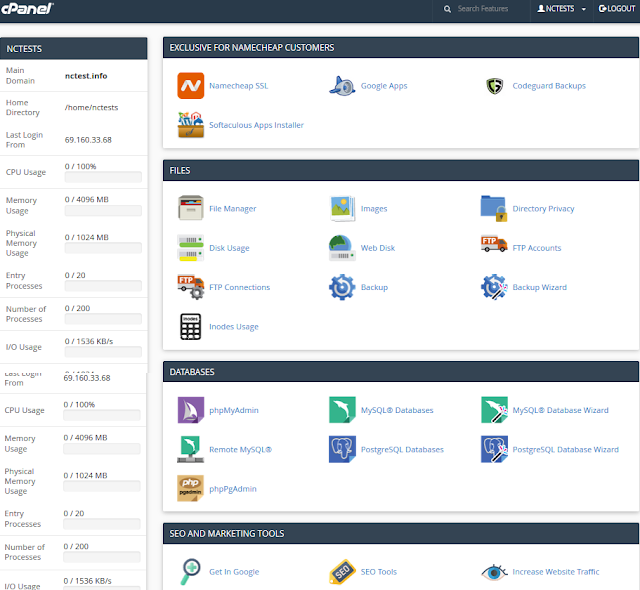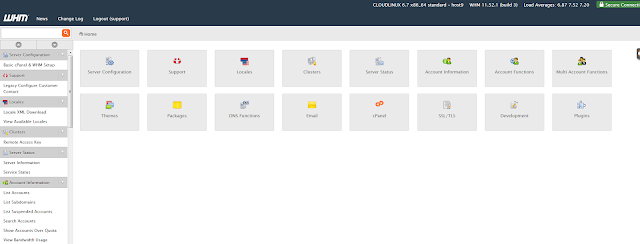What is cPanel?
What are the key benefits of cPanel?
cPanel allows users to manage files with ease. Its simple GUI ( graphic user interface) acts as an enabler for managing system admins when you are not looking to use a website builder. This has made cPanel user-friendly in comparison to its peers and competitors. For the want of explaining its pluses in details, here is a list of the same:
◈ Allows you to add on domains and manage email according to hosting plans
◈ Gives control over FTP accounts to upload, delete or move files on the server
◈ Provides users with web related stats like visitors/month through AWS stats
◈ Numerous add-ons and APIs with Softaculous integration that allows users to download WordPress, Joomla or Drupal updates
◈ Ensures that your data is secure along with backup and recovery options; all this without compromising on scale
◈ Much economical in comparison to Windows
What is WHM?
What are the key benefits of WHM?
WHM allows users to access DNS zones of all the domains. It also allows users to create, delete and suspend cPanel accounts. Apart from its ability to configure and support customer requests through the cPanel, it also allows users to change domain and usernames of clients. With a total backend control over cPanel, WHM has many other benefits for Virtual Private Servers and Dedicated servers as well. They can be enlisted as follows:
◈ WHM allows users to install and manage SSL certificates with ease
◈ It allows assignment and whitelisting of IP addresses
◈ With WHM, one can get access to all the accounts inside. In addition to this, it also allows one to change the ownership of the account in case an account is sold or deleted
◈ Clients can receive newsletters, updates and deal upgrades via WHM
◈ WHM allows other websites to brand themselves with different WHM skins
◈ It also monitors the status of the server and resources
On the whole, WHM takes away the time spent on server administration and puts the focus on managing requirements of customers.
What is the difference between cPanel and WHM?
Now that we know what role cPanel and WHM play, it will be easier for you to know what is the difference between cPanel and WHM. Or perhaps you have already figured it out with the information we gave you. Just to put things back into perspective, here are some main points that highlight the difference between cPanel and WHM:
| Parameter | WHM | cPanel |
| Controller | WHM is a Reseller control panel. It is used by resellers to manage all the hosting accounts of their reseller plans. | cPanel is the control panel used by the end users under a reseller of hosting provider. It is used by customers to manage their own hosting accounts. |
| Access | WHM provides resellers with root level access. | cPanel only provides access to web hosting account on the server to its users. |
| Port number | WHM functions via 2087, a secure port number. | cPanel on the other hand functions via 2083 as its secure port number. |
| Password reset | Password details for WHM coincide with its cPanel account. I.e if you change the password of your WHM then the password of cPanel will also change. | The password for cPanel can be set by the end user as he or she wants. |
| Domains | One can only add domains and not subdomains. | Adding and removing add-on domains and subdomains is possible. |
cPanel and WHM have characteristics that are quite distinct from one another. Both of them work in tandem, but at the same time maintain a difference that benefits both end users and resellers. We hope that you have understood the difference between cPanel and WHM.
Read More: Reseller Hosting
Read More: Reseller Hosting










0 comments:
Post a Comment